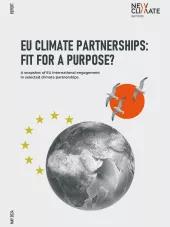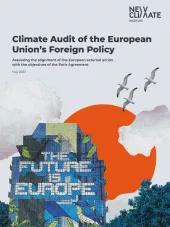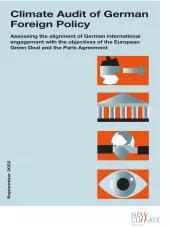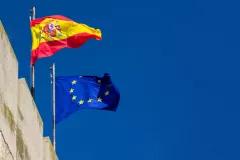As the 2024-2029 EU cycle begins, the EU has an opportunity to solidify its role as a climate leader and global competitor. To do this, it must reform its climate diplomacy strategy to respond to the shifting geopolitical landscape and worsening climate crisis. The EU faces increased competition from China and the US in cleantech, changing economic and security interests, and rising geopolitical tensions, all of which could threaten its competitive position. This comes at a time when the impacts of the climate crisis are increasingly apparent in Europe and around the globe.
Amidst a strong focus on competitiveness, competing foreign policy priorities, and domestic challenges, alongside escalating climate impacts, it is crucial for the EU to keep climate action firmly on the agenda, both at home and abroad. Climate considerations must be integrated across all EU foreign policy domains and treated as a cross-cutting issue within the EU’s external agenda. And, in line with its historical responsibility, the EU must effectively coordinate to support partners in the transition.
Navigating these global challenges requires strong leadership, a clear mandate, adequate resources and capacities and an effective institutional structure. Bolstering the external dimension of the Green Deal and supporting a green EU competitiveness deal will be key.
Despite progress, significant work remains to fully embed climate into the EU’s foreign policy. This brief presents a menu of reform opportunities for the 2024-2029 EU cycle to improve the mainstreaming of climate in EU external action. Reforms are presented in four categories identified as key components to elevate climate into EU foreign policy:
- climate foreign policy strategy,
- strong governance,
- streamlined coordination and communication,
- and sufficient resources.










